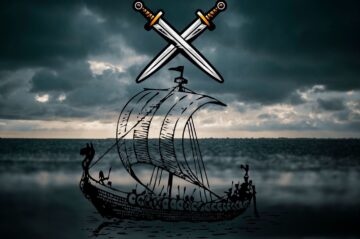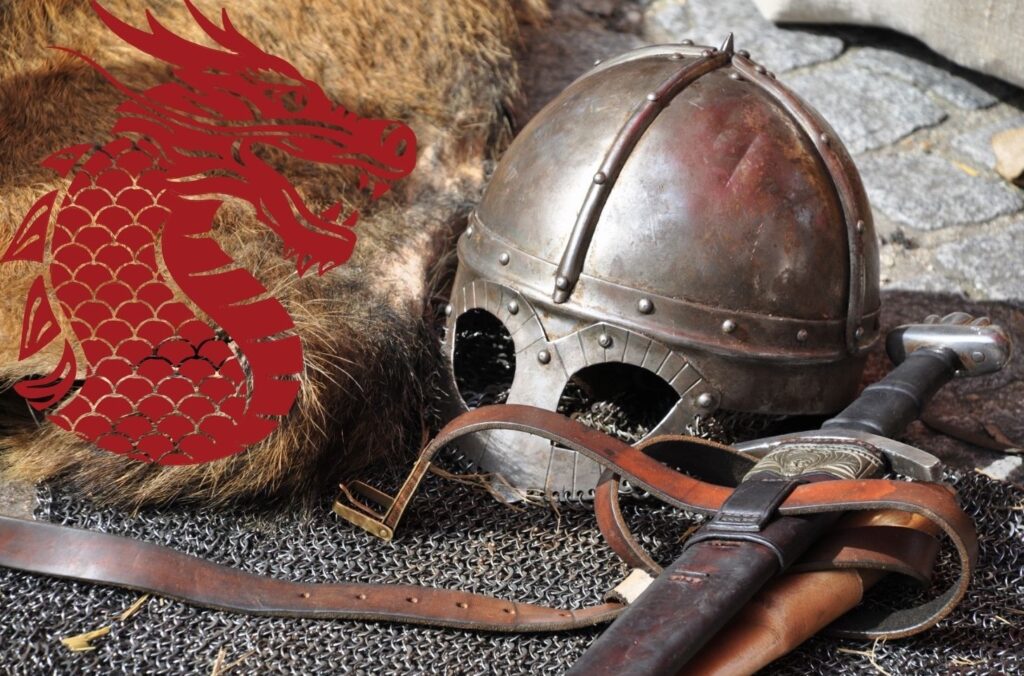A mighty hero sails to the land of his father’s trusted friend, slays a family of monsters to defend a hall and its king, wins glory and honor for his name to become king himself, and perishes in epic battle with the deadliest opponent he ever faced.

It sounds like a timeless story, a fantasy about a conquering hero and his daring quest. Beowulf is the earliest known Old English poem, so ancient that no one even knows the name of the author.
A classic, mythological tale showcasing the Nordic values of honor, battle, and ambition, Beowulf has even seen adaptation to the silver screen in the 2007 film of the same name directed by Robert Zemeckis. Both depictions present Beowulf as a mighty Geat hero come to save a king of Denmark from a feral beast, but their definition of “hero” varies from myth to movie. The film depiction of Beowulf reflects on the inherent unreliability of myth and legend, and examines the modern assessment of what being a hero truly means.
In the original Beowulf poem, Grendel, the monster who attacks King Hrothgar’s hall, is a descendant of the Biblical first murderer, Cain, a “grim and greedy creature… cruel and savage… proud of his plunder” as he attacks and eats the Danes (Beowulf, Page 9). The movie takes a more sympathetic approach to the monster to contrast him against its version of Beowulf; The film’s Grendel is sickly, cursed, misshapen, and only attacks because the merrymaking of the Danes harms his supernaturally sensitive ears.
The son of a demonic seductress who conceived him with Hrothgar, Grendel is the king’s greatest shame: a lonely, isolated figure torn between his human and demonic origins. Beowulf, meanwhile, is powerful, tall, and a boisterous storyteller, proud of his many heroic deeds. He is a braggart who, while genuinely well-intentioned, exaggerates his feats and proudly battles without weapons or armor, showing his great pride.

While the Nordic hero culture of the myth demands that one exaggerate their feats to highlight their reputation, the film questions this deception. Rather than slay Grendel’s vengeful mother like in the poem, 2007’s Beowulf repeats Hrothgar’s mistake by sleeping with her. Pride, not lust, motivates these actions, as Grendel’s mother promises the hero, “A man like you could own the greatest tale ever sung. Your story would live on when everything now alive is dust.”
This scene reveals Beowulf’s weakness as a proud, ambitious warrior; he becomes king at the cost of his honor. This highlights the inherently unreliable nature of the oral storytelling prominent in ancient Nordic culture. When no one writes their stories down, who is to say what truly happened?
In the myth, the dragon that burns down villages and ultimately kills Beowulf has no connection to Grendel or his mother. It is a beast of nature rather common to Nordic mythology. The film presents the dragon as the representation of Beowulf’s ego by making the massive, golden creature his son, just as Grendel was Hrothgar’s. When he falls in battle slaying the monster, his friend Wiglaf sees it as a noble, selfless sacrifice, but Beowulf accepts the truth: that had he not succumbed to the promises of Grendel’s mother, the dragon would never have been born, and dozens would still live.
Beowulf’s final request to his wife is to “keep a memory of me, not as a king or a hero; but as a man: fallible and flawed.” While the myth treats violence and deception as worthy paths to glory, the film turns this idea on its head. Grendel is an unsung victim, his mother a vengeful manipulator; both Hrothgar and Beowulf fall prey to the common lure of human pride. 2007’s Beowulf shows the modern critic’s perception of legend, questioning if war and exaggeration truly earn someone the title of hero.
Sources
Anonymous. (2019). Beowulf. Alma Books.
“Beowulf.” 2024. Encyclopædia Britannica. Encyclopædia Britannica, inc. January 26, 2024. https://www.britannica.com/topic/Beowulf.
Zemeckis, Robert, dir. 2007. Beowulf. s.l.: Warner Bros.
